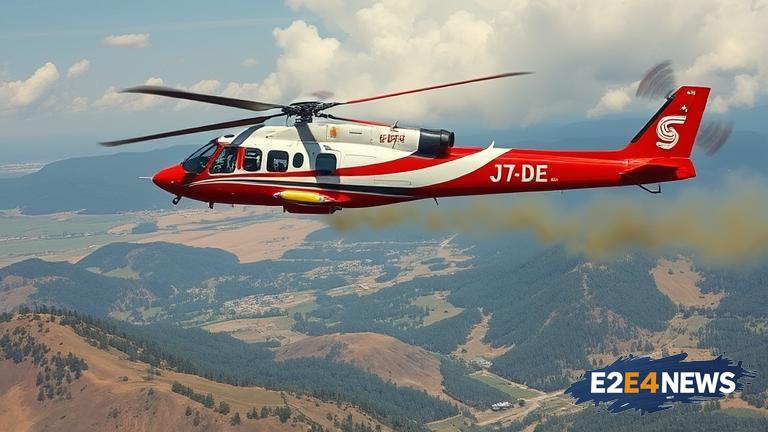Bulgaria is currently facing a severe crisis in its firefighting capabilities, with a significant lack of dedicated aircraft to combat the numerous wildfires that have been ravaging the country. Despite the efforts of the government to address the issue, the country still relies heavily on volunteer firefighters to step up and fill the gap. The situation has been exacerbated by the hot and dry weather conditions, which have created a perfect storm for wildfires to spread rapidly. The Bulgarian government has been criticized for its slow response to the crisis, with many arguing that more needs to be done to prevent and prepare for such disasters. In the absence of dedicated firefighting aircraft, volunteers have been playing a crucial role in helping to contain the fires. These brave individuals have been working tirelessly, often in challenging conditions, to protect their communities and the environment. The use of volunteer firefighters has been a common practice in Bulgaria for many years, but the current situation has highlighted the need for a more comprehensive and sustainable approach to firefighting. The government has announced plans to acquire new firefighting aircraft, but the process has been delayed, leaving the country vulnerable to the ongoing crisis. In the meantime, the volunteers continue to work selflessly, using their skills and expertise to help mitigate the effects of the wildfires. The impact of the fires has been significant, with many areas of the country affected, including forests, agricultural land, and urban areas. The economic costs of the fires are also likely to be substantial, with many businesses and individuals affected by the destruction. The environmental impact of the fires is also a major concern, with the loss of biodiversity and the release of greenhouse gases contributing to climate change. The Bulgarian government has been working with international partners to address the crisis, including the European Union, which has provided support and expertise. However, more needs to be done to address the root causes of the problem and to prevent similar crises from occurring in the future. The use of technology, such as drones and satellite imaging, has also been explored as a potential solution to help detect and respond to wildfires more effectively. Additionally, the government has been working to improve its emergency response systems, including the creation of a national emergency management agency. The agency will be responsible for coordinating the response to disasters, including wildfires, and will work closely with local authorities and volunteer groups. The creation of the agency is seen as a positive step towards addressing the crisis, but more needs to be done to ensure that the country is adequately prepared for future disasters. The role of the media has also been important in raising awareness about the crisis and highlighting the need for action. Many news outlets have been reporting on the situation, and social media has been used to coordinate volunteer efforts and raise funds for those affected. The international community has also been showing its support for Bulgaria, with many countries offering assistance and expertise to help address the crisis. The European Union has been particularly active in its support, with the European Commission providing funding and expertise to help Bulgaria develop its firefighting capabilities. In conclusion, the firefighting crisis in Bulgaria is a complex and multifaceted issue that requires a comprehensive and sustainable approach to address. While the use of volunteer firefighters has been crucial in helping to contain the fires, more needs to be done to prevent and prepare for such disasters. The government, international partners, and local communities must work together to develop a long-term strategy for addressing the crisis and ensuring that the country is adequately prepared for future disasters.
